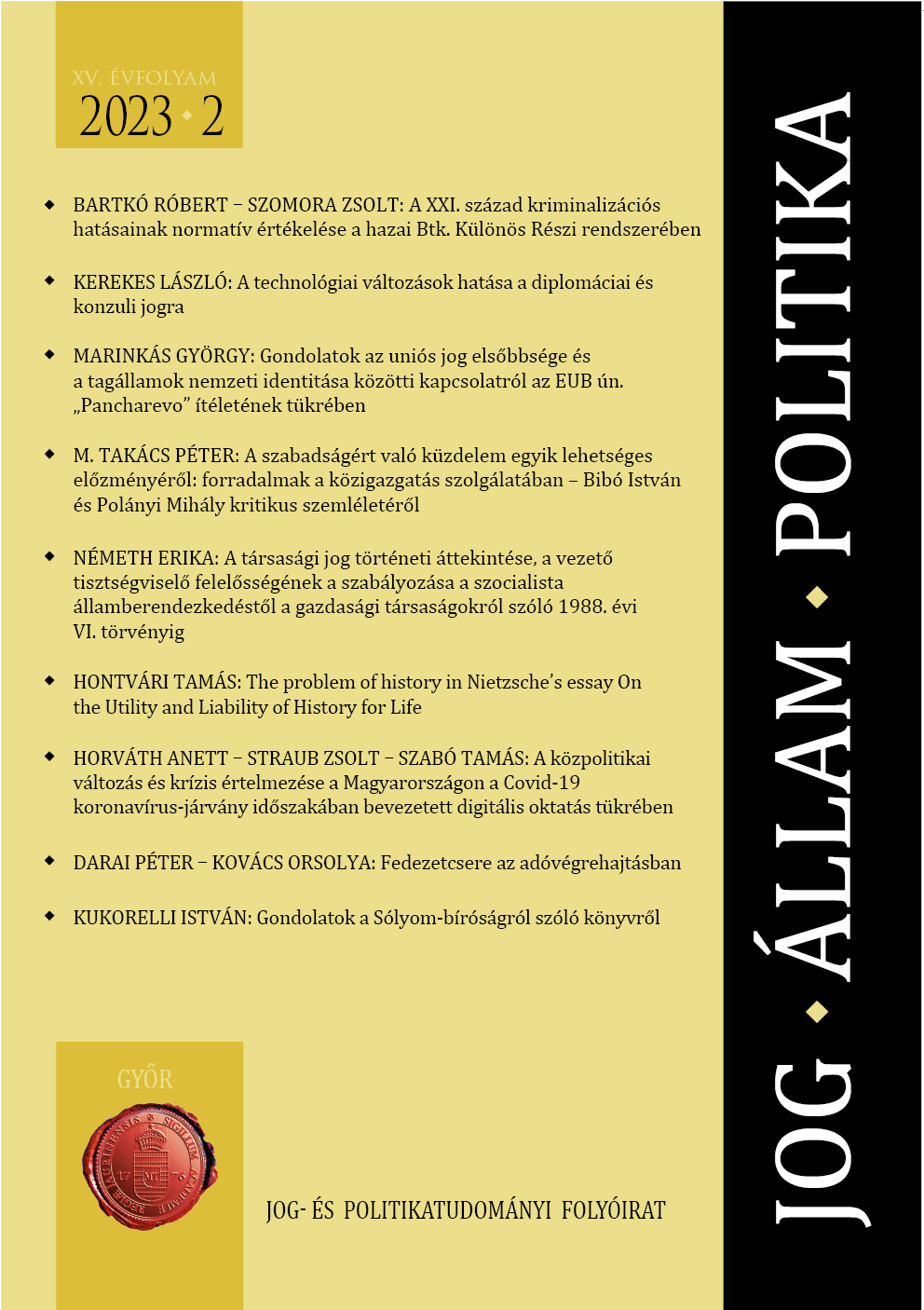Fedezetcsere az adóvégrehajtásban
ABSTRACT
The Act of the tax debt execution is maybe the most disputed administrative measure in the system of law because in this case the power of state intervenes in the personal intimate zone limiting the title of ownership. Respecting the final decision or judgement just as important in the Basic Law relating the constitutional order, however at least as important is the protection of the debtor’s rights and legitimate interests. In the proceeding of tax debt execution rights of the tax authority and the debts face to face requires sufficient balancing rules which is part of the debtor’s rights. By the law upon the judgment debtor’s application to be submitted before the auction is scheduled at the latest, in respect of the judgment debtor’s circumstances meriting particular treatment, the court may release the seized movable property from the attachment if the recovery of the debt is secured even after the release and/or if the judgment debtor offers an asset as a cover for the debt with a market value reaching or exceeding that of the asset requested to be released. This essay tries to trying to present the legal institution of the exchange of covers in enforcement proceedings in the tax debt execution. It should be empasized that the tax execution is a coercive procedure because of the tax enforcement so taking considerations because of reasons of equity is possible between strict rules.
KEYWORDS
* debtor * proceeding of tax debt execution * test of necessity and proportionality * act of execution * equity, order * Constitutional Court *
IRODALOM
Csiba Tibor (2005): A szakértő szerepe a közigazgatási hatósági eljárásban és a közigazgatási bíráskodásban. In: Magyar Közigazgatás. 2005/2. sz.
F. Kiss Gabriella – Pócza Judit (2015): Az ingatlanárverés mint kényszerértékesítési forma a magyar jogi szabályozásban; a hitelező árverési stratégiája. In: Themis. 2015/1. sz.
Kapa Mátyás (2015): A kényszerértékesítések jellemző sajátosságai. In: Polgári Szemle. 2015/1-3. sz. (Elérhető: http://epa.oszk.hu/00800/00890/00060/EPA00890_polgari_szemle_2015_1-3_666.htm. Letöltés ideje: 2023.02.11.).
Kormos Erzsébet (2002): Alapelvek a bírósági végrehajtásban. PhD értekezés, Miskolc.
Pataki János István (2013): Gondolatok a bírósági végrehajtás rendszeréről. In: Jogelméleti Szemle. 2013/1. sz.
Pozsár-Szentmiklósy Zoltán (2016): Alapjogok mérlegen. Az általános alapjogi tesztek dogmatikája. HVG-ORAC Lap- és Könyvkiadó Kft., Budapest.
Somody Bernadette – Szabó Máté Dániel – Vissy Beatrix – Dojcsák Dalma (2021): Alapjogi tanok I. HVG-ORAC Lap- és Könyvkiadó Kft., Budapest.
Szentmihályi-Molnár Gréta (2019): A fokozatosság és arányosság elve alkalmazásának gyakorlati problémái és a végrehajtás első lépcsője. (Elérhető: https://www.mabie.hu/index.php/cikkek-tanulmanyok/1401-dr-szentmihalyi-molnar-greta. Letöltés ideje: 2023.02.15.).

